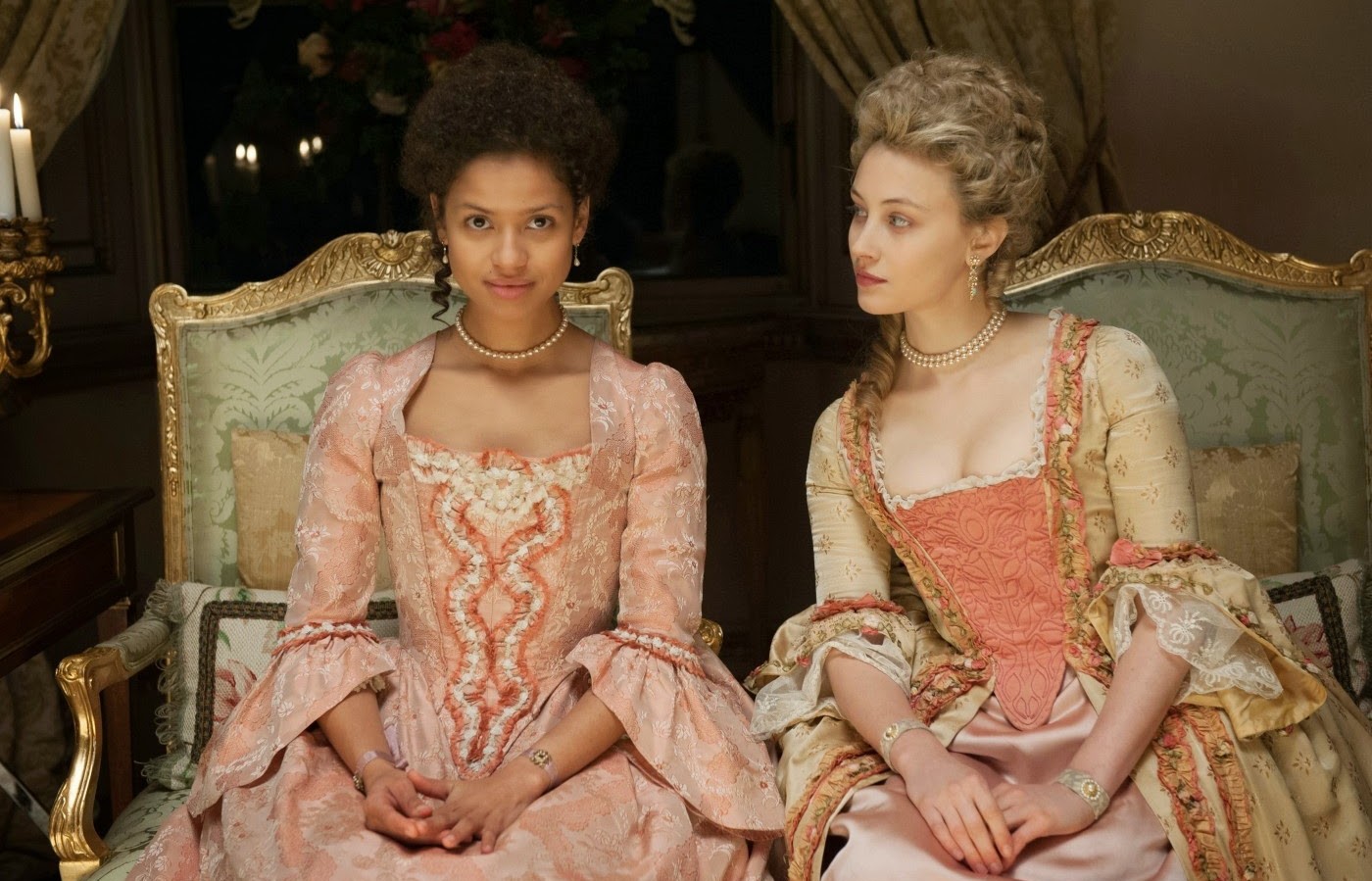The trailer for this made it look a lot more melodramatic than it is, a shame as it’s a solid film with a strong political context and an actual historical trial as framework for its main protagonists to flit around. Although the court case was real and seminal for the law of England and Wales, taking place in 1783, very little is known about the main characters other than their existence and their familial setup, so director Amma Asante and writer Misan Sagay had a lot of leeway with where to take them and the two pictured above are most famous for a painting of the pair of them, which can currently be seen in Scone Palace in Scotland.
Belle (played by Gugu Mbatha-Raw) is the heroine of the piece, and as the daughter of a rich white man and a black slave she is raised by the family of the former whilst he goes off around the world never to return. She is accepted into the family, the rest of whom are played by Tom Wilkinson, Emily Watson, Penelope Wilton and Sarah Gadon, but she must always know ‘her place’ until her and her sister reach the age of coming out, when they must quickly be married before consumption gets them or they decide to go frolicking in the rain and then die, often the fate of females in British period dramas.
The pace is perfect, the costumes are rich and the locations suitably grandiose with burgeoning bosoms in abundance – did ladies really wear corsets to breakfast? Doesn’t seem particularly conducive to digestion, nor so for their male companions who must have found it tricky to concentrate on their food, especially with the visible threat of explosion and the potential loss of one’s eye. The trial of the deplorable Zong massacre, which forms the backbone of the story, concerned the drowning of all the slaves onboard the Zong and her captain’s subsequent insurance claim against loss of earnings through unavoidable jettison of cargo – his claim being low water supplies only sufficient for his crew necessitated the killings. This presented the law with a rather thorny moral and monetary point to consider, and the head of Belle’s household, Lord Mansfield, is the man who must make the ruling.
In terms of film, it supplies a nice backstory to that of the fight for the abolition of slavery in the UK detailed in ‘Amazing Grace’ (06), but it is dangerous to think of it as a relic of the past as it still rears its ugly head in modern day Britain with recent rulings against the government in the high court in England to try to curb it. This refers to the forcing of those out of work for a certain amount of time (it was originally to be one year, but reports abound of less time than this) into work, which in principle I’m not sure many people would argue against, but work that they weren’t paid for, instead they just continued to receive state benefits working out at two pound something an hour (the legal minimum wage for anyone over 21 is more than six pounds an hour) – often for large companies like Tesco (who did at least eventually pull out of the scheme on moral grounds) immediately demonstrating that they could have in fact offered the individual a paid position, but would rather take on slave labour. If people didn’t comply, they were left with nothing and, as far as the government were concerned, to die.
Orchestrating this were middle men, private agencies, modern day slavers who did the same thing in Australia before they came here, where I believe their schemes were eventually brought to an end. Meanwhile here the high court ruled it wasn’t slavery but that it had been delivered in an illegal manner, which was a cop-out for the state really, but it did mean those affected could claim money back for any welfare suspension borne from refusing to comply with the system – and it was an individual who stuck her neck out to fight the Conservative government and achieved partial victory (The Red Dragon himself broached this issue with no less than two parliamentarians, with what can only be described as very limited results, proving the old adage ‘If you want something done, you have to do it yourself’).
Belle then is both a fascinating footnote in this story of human bondage and a well balanced drama with good performances from old hands and new faces alike, and it would be a wonderful idea indeed if the powers that be took heed of the more emotive and full of gusto speeches it delivers, since they can’t even muster a whimper in opposition to evil today unless they consider it to be within the purview of their own interests.

